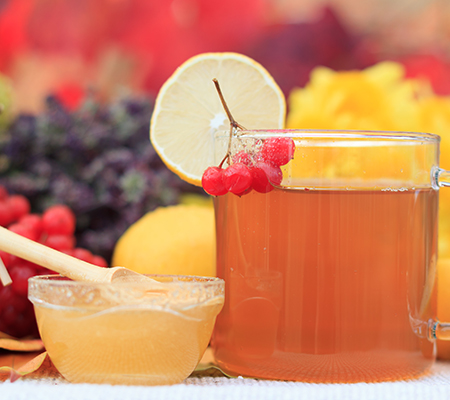
Kombucha is a fizzy drink made with sweetened tea, yeast and bacterial cultures.
Kombucha has been around for a long time, but it’s only recently become a big seller in grocery stores. Its rise in popularity is based on claims it can help with digestion, improve immune system function, improve energy, rid the body of toxins and jumpstart weight loss.
Kombucha is a fizzy, fermented drink made from sweetened black or green tea, yeast and bacterial cultures. The resulting concoction is a slightly sweet, slightly tart drink that contains B vitamins, probiotics and a tiny amount of alcohol.
While some people are singing kombucha’s praises, Marshfield Clinic registered dietitian Samantha Bulgrin thinks the drink is a fad. She said other dietary options are better for achieving the health benefits you may be looking for.
Scientific evidence doesn’t back the benefits
“Kombucha isn’t necessarily bad, but scientific evidence doesn’t show that it provides the health benefits people think it does,” Bulgrin said.
Three balanced meals a day, plenty of fruits and vegetables and yogurt or probiotics recommended by your doctor are better, proven options for weight loss, energy, immune function and digestion.
Kombucha may have beneficial ingredients, but some commercially bottled versions may contain other ingredients you don’t want or need in your drink, like added caffeine and sugar. Read the label carefully before choosing a drink.
Homebrewed versions raise food safety issues
The federal Food and Drug Administration said kombucha is safe when properly prepared. A commercially bottled drink from the grocery store is a safe bet if you enjoy kombucha.
Risk of contamination and health side effects increase when kombucha is brewed at home under non-sterile conditions or using the wrong equipment. Several cases of illness including upset stomach, allergic reaction, kidney and liver problems, and buildup of lactic acid in the body have been reported in people who drank kombucha.
Byproducts that grow on top of the drink during fermentation may contain dangerous bacteria and mold. Brewing in the wrong type of container can cause heavy metals to leach out of the vessel and make the drink toxic. The alcohol content in your drink could end up higher than expected, making it an undesirable and possibly dangerous choice for the person drinking it.
Bulgrin recommends using a stainless steel container, sterilizing equipment and following a recipe with a lot of positive reviews if you brew kombucha at home.
“I wouldn’t recommend home-brewing kombucha if you have a compromised immune system, you’re pregnant or breastfeeding, or you plan to give the drink to children,” Bulgrin said.
Related Shine365 posts
Worth the wait: Fermented foods and gut health


Fad or not. Kombucha is healthy and yummy, beats drinking soda pop, sugary juices and kool aid, alcohol, etc. Less sugar, made with fruit, tea and the like.